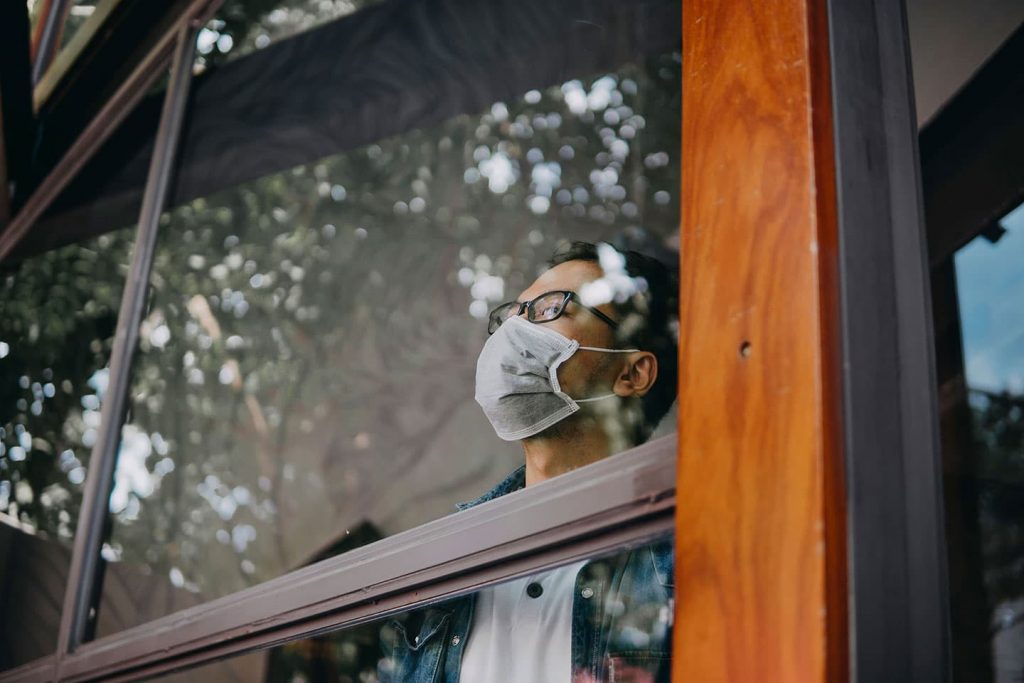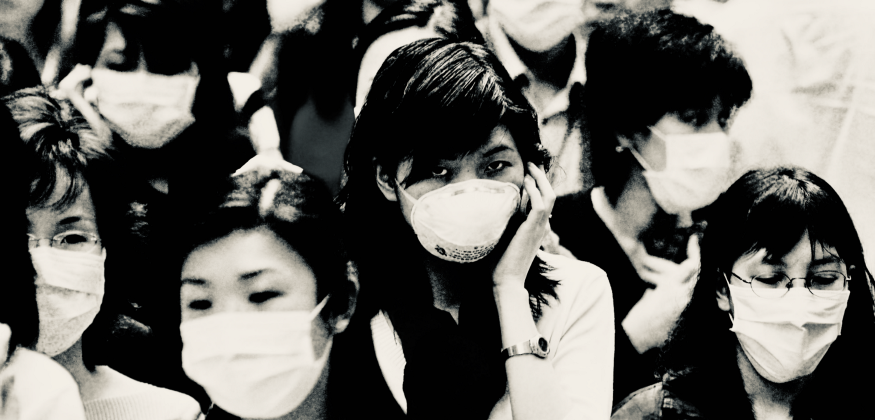There is no doubt we are living in uncertain times. Whilst it may feel overwhelming, uncertainty also offers powerful moments for changemakers to create new, regenerative systems and cultures. Yet to do this we will need to find ways to build resilience to, and even embrace, uncertainty.
As the Covid-19 pandemic continues to sweep over the world, many people are coming to the difficult realisation that we may never get back to normal times. Despite the extensive lockdowns and the promises of vaccines, we are witnessing a shift in how we understand and frame the pandemic, from beating the virus to learning how to live with it. While the initial anxiety at its onset may have diminished, a longer-term sense of endless uncertainty has now set in.
For changemakers, trying to foster positive change in this environment can be overwhelming, exhausting and challenging, not only having to deal with uncertainty ourselves but also understanding how it impacts our campaigns, our audiences and the very systems we are striving to change.
Many hopeful voices have stated that the nature of the Omicron variant may signal the way out of the pandemic, but these views are often born out of our deep desire to return to a new or old normal. Just how likely is it that we will ever get back to a new normal? Even if Omicron is the last wave or we suddenly learn to “live with the virus”, economic and social volatility and inequality have all massively increased in the past two years and will not disappear overnight. The World Economic Forum’s 2022 risk index and the 2022 Doomsday Clock point out, future risks have significantly increased.
“Most…expect the next three years to be characterized by either consistent volatility and multiple surprises or fractured trajectories that will separate relative winners and losers.”

Two years into the pandemic this dangerous combination of social unrest, geopolitical tension, divergent recovery and an increasing reliance on digital technology pose significant additional and interrelated risks. This only adds to the long-term risks of climate change and biodiversity loss. It will not be one single crisis that will challenge our systems and cultures the most over the coming years, but the increased uncertainty resulting from this mix.
It is therefore time to ask ourselves, are the mindsets, systems and cultures that evolved in a period of certainty fit for our future? Will uncertainty put increasing stress on our current systems, opening opportunities for change in our search for more resilience?
What is uncertainty?
For the human mind, uncertainty means we are unable to see the path ahead or know the best way to act in order to achieve our desired outcomes. Controlled uncertainty, like gambling, can offer a thrill for some, but when it extends to major parts of our lives, as has been the case for many around the world over the past two years, it is incredibly hard to deal with. This ongoing uncertainty can take its toll, leading to increased levels of stress, anxiety or depression and even affecting how we perceive time. This can, in turn, lead to reduced rational decision making, an over reliance on emotions, and irrational behaviour. People are eager to quickly reestablish a sense of certainty to give themselves a feeling of control and predictability, even if what gives them certainty is unfounded or misleading, such as conspiracy theories or denial.
“Because so many people worldwide are living in a state of anxiety — at least partly due to the effects of the pandemic, social unrest, and climate change — we might see more people showing these kinds of biased responses to new or preexisting potential threats,”
Uncertain systems
Uncertainty not only impacts our minds but also profoundly impacts the systems we live in. The Omicron variant had a direct impact on the financial systems, leading to increased volatility in the markets. Meanwhile, production and consumption were impacted in multiple ways: shops and factories had to close, supply chains once perfectly timed to deliver goods to their customers, faltered as supply was disrupted by lockdowns and mass sick leave. Uncertainty stokes frantic buying and increases demand for home appliances and electronics while other goods remain on the shelves. Then recovery initiates consumption peaks, overwhelming producers. These cycles of boom and bust reduce predictability and efficiency in the supply chain, leading to unseen levels of inflation which then impacts consumer trends, employment and economic growth. As uncertainty weighs on people’s minds the volatility of the system is here to stay.

Embracing uncertainty
Whilst it may feel overwhelming, this is actually a powerful moment for changemakers to create new systems and cultures. In our current system, these periods of extensive uncertainty make the rich richer, while if we build regenerative systems they will not only help us navigate our present challenges but also help to mitigate the ecological crisis to come. Yet to do this changemakers, their teams and communities will need to find ways to build resilience to, and even embrace, uncertainty.
People have varying levels of resilience to uncertainty, for example, different cultures show different levels of uncertainty tolerance while some, such as gamblers or hedge fund managers, thrive in uncertainty. Uncertainty tolerance is highly malleable and growing this tolerance will also yield benefits beyond your ability to work in uncertain times. High tolerance is also associated with lowering negative emotions and higher life satisfaction, as well as higher self-esteem and creativity.
If you want to lead and create change in uncertain times you and your team or community need to learn, not only how to endure, but also how to harness uncertainty. Below are six strategies for building uncertainty tolerance:
- Emotional mindfulness: Provide training and space for reflection and other rituals to establish emotional mindfulness in your team, treating it as a skill. Foster empathy and embrace the differences in uncertainty tolerance in your team or community.
- Be informed: Even if the future is uncertain, build your strategies on the best available information, accepting that better information may appear at any time. One way of staying informed is listening to your audiences.
- Hedge your bets: Uncertainty increases your risk of failure so don’t work with only one Theory of Change, hedge your bets by laying out multiple possible futures (using scenario planning for example).
- Embrace failure: Build a culture that takes failure for granted and not as a result of underperformance.
- Be agile: Stay vigilant and be ready to pivot if necessary. Identify opportunities that reveal a system’s weakness as leverage for change.
- Humility and Humour: Build a culture that allows you to embrace a lack of control with humbleness and humour.
You can learn more about how to campaign in times of uncertainty and crisis in Mindworks’ Disrupted Mind series and find more recommendations in The Crisis Handbook.



